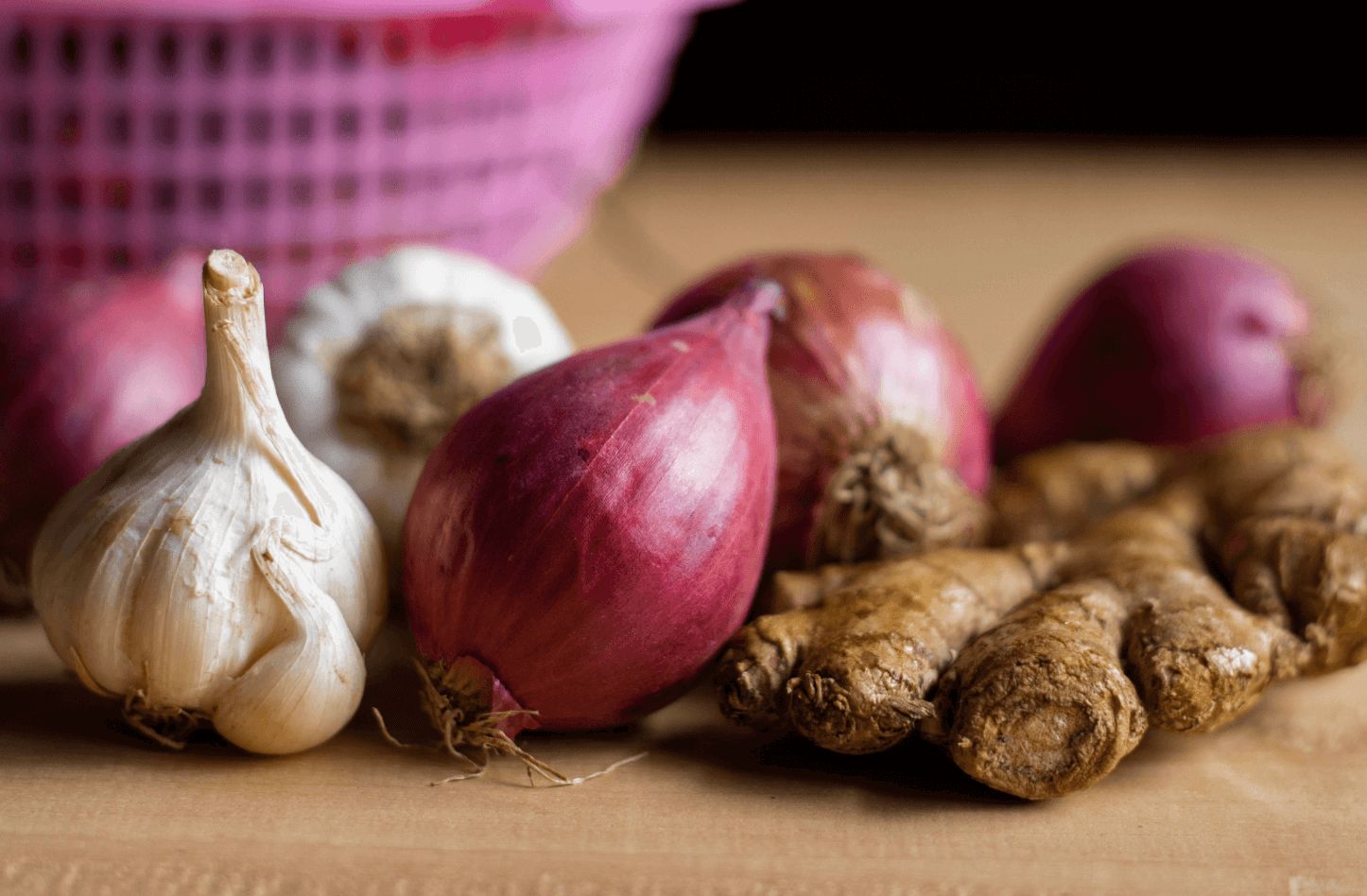- Thriving Guide
- Posts
- How Raw Garlic, Onion, and Ginger Benefit Heart Health
How Raw Garlic, Onion, and Ginger Benefit Heart Health
These bold kitchen staples offer powerful heart-friendly compounds but you don’t need to eat them raw by the spoonful to benefit.

It’s no secret that garlic, onion, and ginger have long been praised for their bold flavors and medicinal properties. Now, wellness influencers are taking it to the next level blending raw garlic, onion, and ginger into a concentrated paste and recommending a spoonful morning and night to “protect your heart.”
While this viral trend may seem promising, experts suggest that there’s a better (and more palatable) way to enjoy these superfoods and still reap the cardiovascular benefits.
The Heart-Healthy Compounds in Garlic, Onion, and Ginger
Each of these ingredients contains powerful bioactive compounds that have been studied for their impact on heart health:
Garlic contains allicin, a sulfur compound formed when garlic is crushed. Allicin has been linked to lower LDL (“bad”) cholesterol, reduced blood pressure, and better blood vessel function.
Onions are rich in quercetin, an antioxidant flavonoid that may help reduce inflammation and slow plaque buildup in the arteries.
Ginger is packed with gingerols, compounds that support blood circulation and may help lower triglyceride levels another key factor in cardiovascular health.
Studies have shown that these ingredients may:
Improve arterial flexibility
Support healthy cholesterol and blood pressure levels
Reduce systemic inflammation
In fact, a 2020 meta-analysis in Phytotherapy Research found that garlic supplementation significantly lowered both total and LDL cholesterol in adults with elevated levels. Similarly, ginger supplementation was associated with reduced triglyceride levels in a 2021 review published in Food Science & Nutrition.
Should You Eat Them Raw by the Spoonful?
Probably not. While the idea of condensing all three into a raw paste may sound efficient, experts warn it’s not the most effective or safest approach.
“Consuming garlic, onion, and ginger raw and in concentrated form can irritate the stomach, cause heartburn, and even interfere with certain medications,” explains Trista Best, MPH, RDN, LD. “Moderation is key.”
Here are a few potential concerns:
Digestive upset: Raw onion and garlic are high in FODMAPs, which can trigger bloating, gas, or acid reflux especially in people with IBS.
Blood-thinning effects: Garlic and ginger can amplify the effects of blood-thinning medications like aspirin or warfarin, potentially increasing bleeding risk.
Strong odor and taste: Aside from the intense smell and flavor, raw garlic and onion can also linger on your breath and cause discomfort.
“Eating these ingredients raw in large quantities isn’t necessary to support heart health,” adds Melanie Marcus, MA, RD. “You can gain benefits simply by cooking with them regularly.”
A Better and Tastier Way to Support Your Heart
Instead of forcing down raw spoonfuls, try incorporating garlic, onion, and ginger into your meals as part of a balanced, heart-healthy diet.
Here’s how to get the most from these flavorful powerhouses:
Crush garlic and let it sit for 10 minutes before adding to food. This activates allicin and preserves its heart-supportive properties.
Add onions to stir-fries, soups, or roasted vegetables to take advantage of their antioxidant benefits.
Grate ginger into salad dressings, marinades, or steep it in hot water for a soothing tea.
Many of the heart-healthy benefits associated with these ingredients are amplified when they’re consumed consistently and alongside other nutrient-rich foods, such as fruits, vegetables, whole grains, and healthy fats.
A Mediterranean-style diet which emphasizes plant-based foods, olive oil, seafood, and herbs has been shown to lower the risk of cardiovascular disease and works well with these ingredients.
Bottom Line
Garlic, onion, and ginger do offer science-backed support for heart health but you don’t need to go to extremes to see results. Skip the raw paste trend and focus on eating these ingredients regularly in cooked, flavorful meals.
For more science-backed wellness tips, subscribe to our newsletter or share this article with someone who loves cooking with purpose.